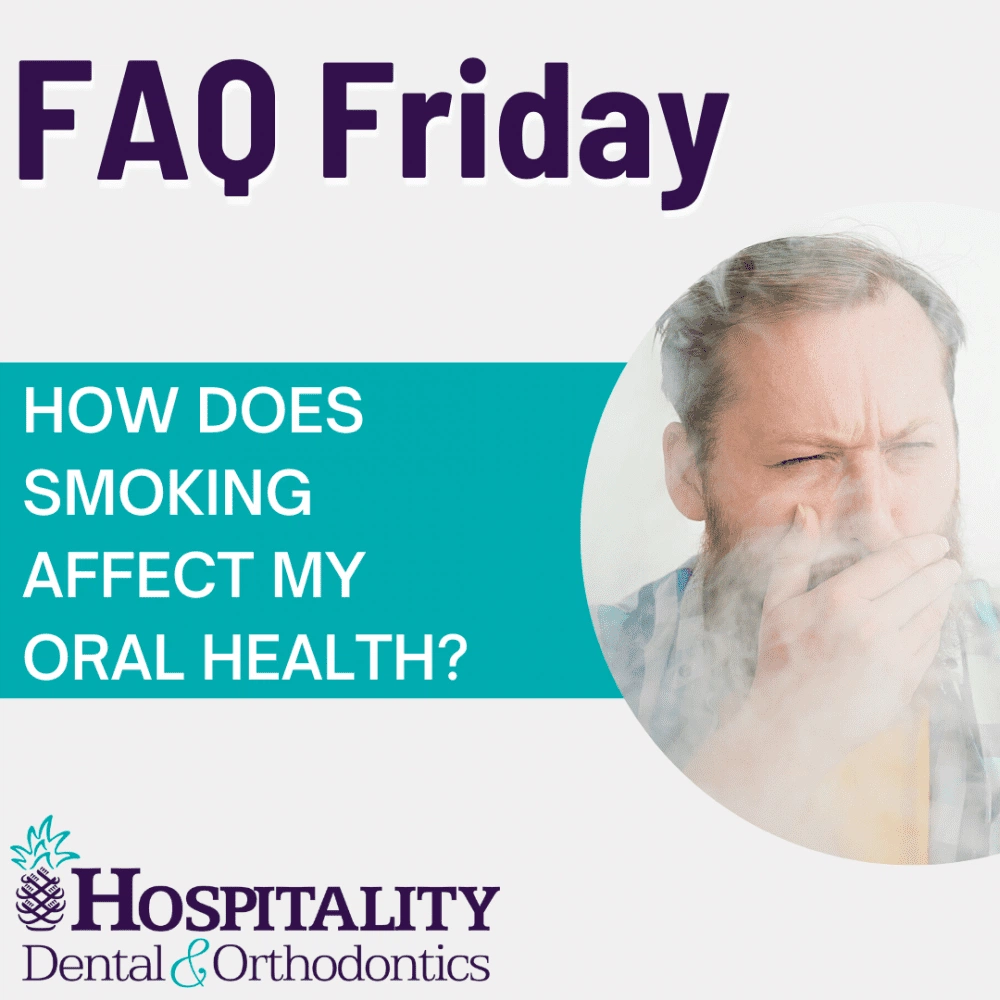
Most people know smoking is bad for their health, but are they aware of how it affects their mouth, gums, and teeth? Individuals who smoke have a higher risk of developing oral cancer, gum disease, tooth decay, and much more.
Oral cancer can be found on the tongue, inside of the cheek, roof or floor of the mouth, and lips. It's never too late to quit smoking and prevent developing oral cancer. Treatment for oral cancer includes surgery, radiotherapy, and chemotherapy.
The gums can be affected because smoking causes a lack of oxygen in the bloodstream, so the infected gums aren't able to heal. The use of tobacco makes it hard for the immune system to fight infections.
It is vital to prevent tooth decay and tooth loss. You can lose teeth towards the back of your mouth and this can create problems when chewing food. Teeth hold the shape and the lower part of the face, thus it is important to treat this issue early or prevent it entirely.
The common oral risks for those who smoke are:
- Gum (periodontal) disease
- Oral cancer
- Decreased sense of taste
- Tooth loss and tooth decay
- Whitening of the soft tissue in the mouth (smoker's keratosis)
- Foul breath (halitosis)
- Dry socket after tooth removal
The gums can improve and heal for those who quit smoking but can be prone to bleed more. After dental treatment, the healing process will be slow but it's a huge step in the right direction. If you're finding it difficult to quit smoking, try and reduce the number of cigarettes, drink water to avoid having a dry mouth, and clean your teeth and gums two to three times a day.
Contact your dental provider at Hospitality Dental & Orthodontics if you have any issues due to smoking or chewing tobacco.
